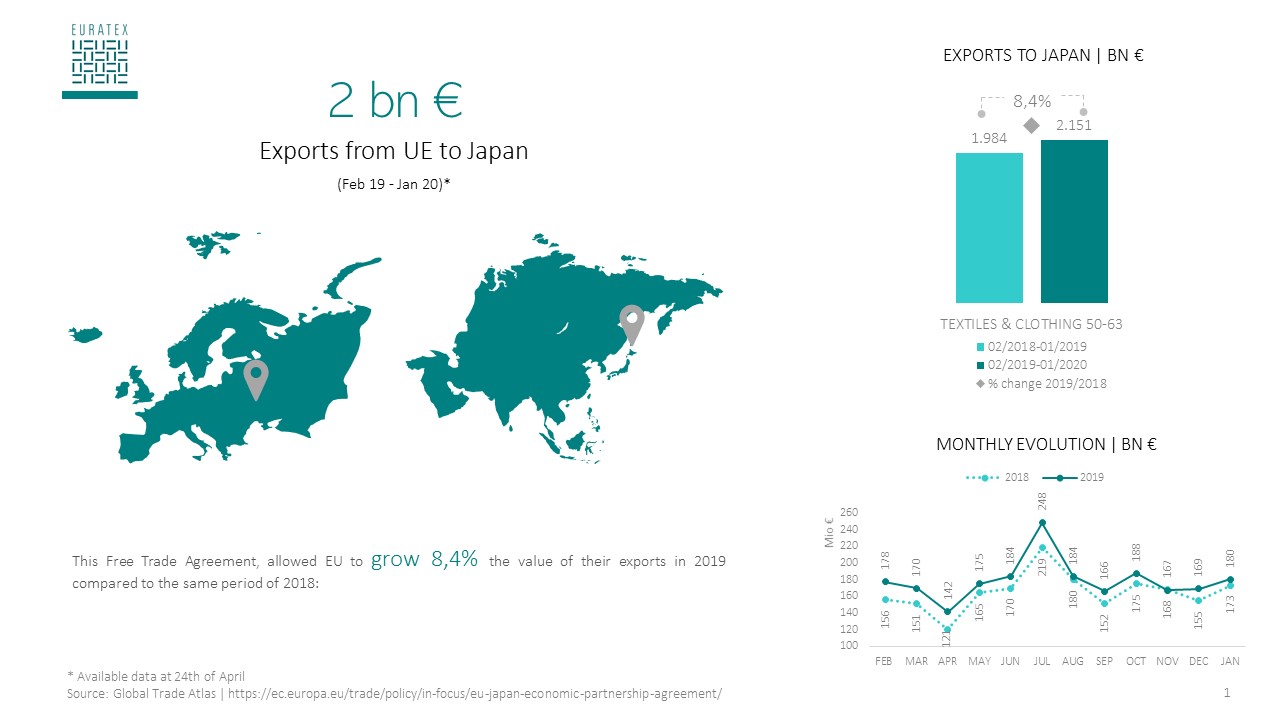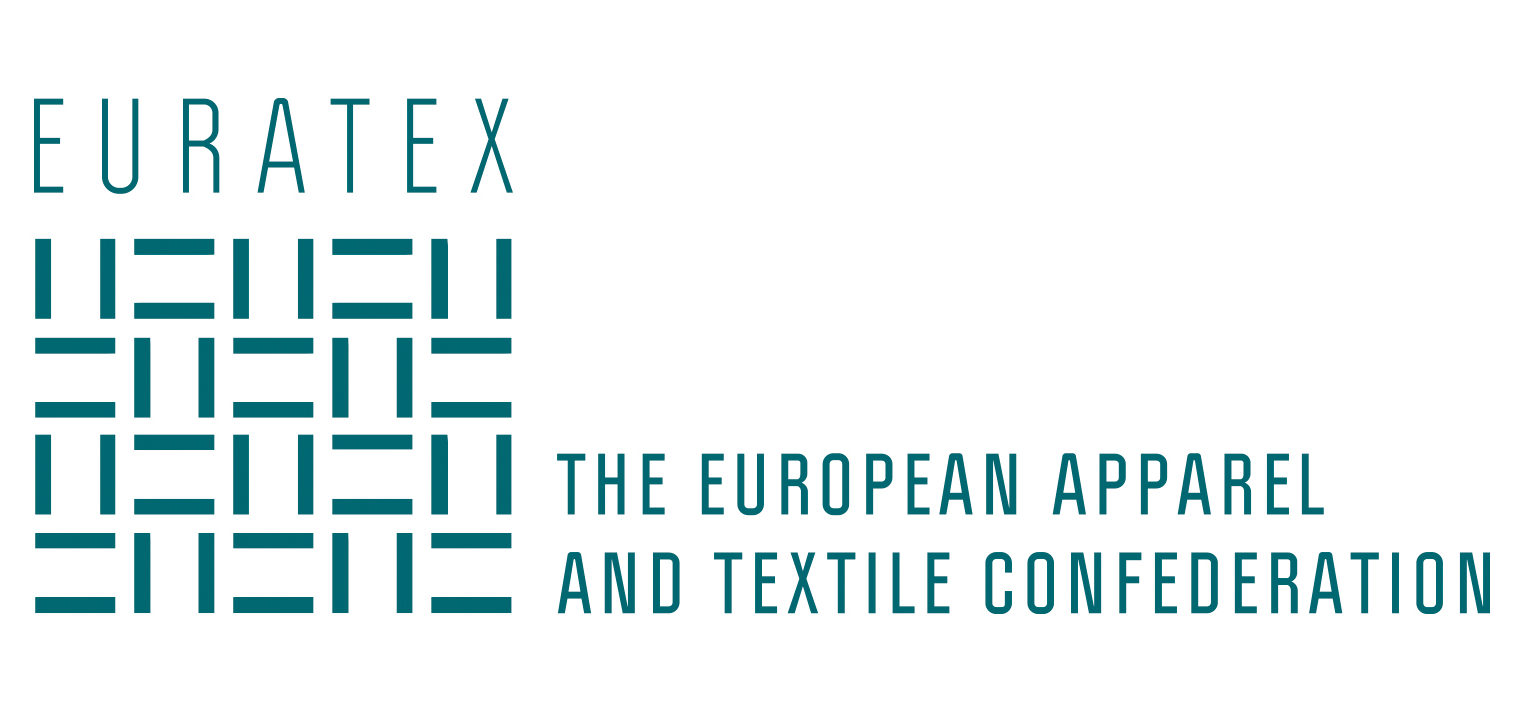
Brussels, 08/05/2020 – It’s been little more than one year since the Economic Partnership Agreement between the EU and Japan entered into force. European textile and clothing companies benefited greatly from the agreement as, despite some customs’ procedures challenges, exports towards Japan increased by 8,4%.
From the entry into force in February 2019 to January 2020, Textile and Clothing exports grew 8,4% compared to the same period of 2018, reaching € 2.151 billion. During this period, exports of clothing products increased around 74%, whereas textiles grew more than 26%. The main 3 products under apparel and wool & animal hair contributes to 80% of the total exports from EU to Japan, both on 2018 and 2019. These three categories represent alone € 151 billion of EU exports. Other categories saw a significant expansion, such as made-up textile articles, woven fabrics and man-made staple fibers CH55.
Some difficulties were observed for some products in relation to the certificates of origin, as Japanese customs asked for additional documents, making trade for EU companies difficult. This might be related to the novelty of the agreement and its new procedures. Immediately informed, the European Commission and Japanese took actions to find a solution and mitigate the negative impact.
All in all, textile and clothing companies hugely benefited from the free trade agreement with Japan, an important market for this sector. EURATEX on its side, is raising awareness among its members about the technicalities of free trade agreements and how to increase the EU T&C exports even further. EURATEX role is then to provide valuable feedback and technical inputs to the European Commission and address issues important to T&C SMEs, such as operative rules of origin and customs procedures.
For more information on the issue, please contact Ana Manuelito, Senior Policy Officer, at Ana.Manuelito@euratex.eu.
